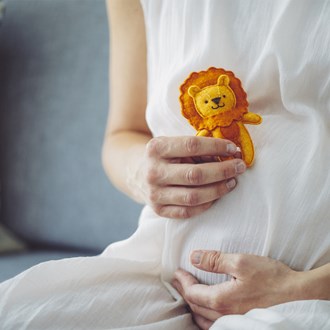Are supplements safe in pregnancy?

What should you be getting more (or less) of in order to ensure the healthiest pregnancy?
When many women come to see me before pregnancy, they often want to know what supplements to take to prepare for the big event. While pregnant, too, lots of ladies have questions about topping up their nutrient intake. Let’s have a closer look, then, at what you need…
Folic acid
This is the supplement form of folate, a B vitamin that naturally occurs in green, leafy vegies – the kind we should all be eating more of! Folic acid deficiency during pregnancy is linked to neural tube defects (NTDs) in bubs. These include spina bifida, which affects the development of the spine and spinal cord and means lifelong disability if a child is born with it. Unfortunately, though, 60 per cent of affected babies don’t survive to birth. Taking a folic acid supplement can prevent a huge 70 per cent of NTDs.
Current Australian guidelines recommend that women take 0.5mg of folic acid supplements daily at least one month before pregnancy and three months into the pregnancy. Women at high risk of having a bub with a NTD (either because one parent has a NTD or a previous pregnancy resulted in a bub with a NTD) are recommended to take 10 times that amount of folic acid for the same period of time.
In some pregnancy vitamins you might find doses higher than the recommended amount (such as 0.8mg), but doctors agree that this is unlikely to do any harm. If you haven’t started on folic acid prior to conceiving, don’t panic, but do start taking it as soon as you can.
You can stop the folic acid supplements after the first three months of pregnancy as your little one’s neural tube has fully formed by this stage and a couple of studies have linked taking a folic acid supplement throughout the complete pregnancy to asthma in bubs. The data isn’t conclusive, but it’s best to play it safe and follow the current recommended guidelines.
Iodine
Iodine is the chemical used by the thyroid to make thyroid hormone. Your thyroid will crank out a staggering 50 per cent more thyroid hormone to support you and your baby, so if your iodine levels are running a little dry anyway, they’ll be exposed during pregnancy. The effects of low iodine on bub are around brain development and IQ.
Australia’s National Health and Medical Research Council (NHMRC) recommends that all women who are planning a pregnancy or who are pregnant or breastfeeding take an iodine supplement of 150μg (also written as 150mcg) each day. You’ll notice some of the more popular pregnancy supplements have higher amounts (such as 250μg). The NHMRC have said that’s fine – you’ll just pee out the excess, but you could be paying for more than you or bub actually need.
Other important nutrients
Some women are deficient in iron during pregnancy. A simple blood test will let your doctor know whether or not you need an iron supplement and how much you should take.
Vitamin D is another vitamin that’s often in lower levels in pregnancy than is ideal. It’s an interesting vitamin and is mostly produced in the skin upon exposure to the sun. This means women who get very little skin exposure to sunshine can have severe enough vitamin D deficiencies that their babies are affected. Bubs of these women are at risk of fits and a disease called rickets. Plus one study has linked low-vitamin D status in pregnant women to an increased risk of pre-eclampsia.
At this stage there are no nationally accepted guidelines about vitamin D levels for pregnant women, but lots of doctors will routinely check your levels and, if they’re low, suggest a supplement of 1000iu a day (that’s the standard amount in a supplement bottle you get at the chemist). Watch your pregnancy vitamin label, as some of the popular ones that do contain vitamin D only contain half of the recommended amount.
If you’re vegetarian or vegan, also chat to your doctor about having a blood test to check your vitamin B12 levels, which may be low. You might need a supplement for this, too.

Dr Ginni Mansberg is a GP, Practical Parenting Expert, author and resident doctor on Channel 7's Sunrise program.






